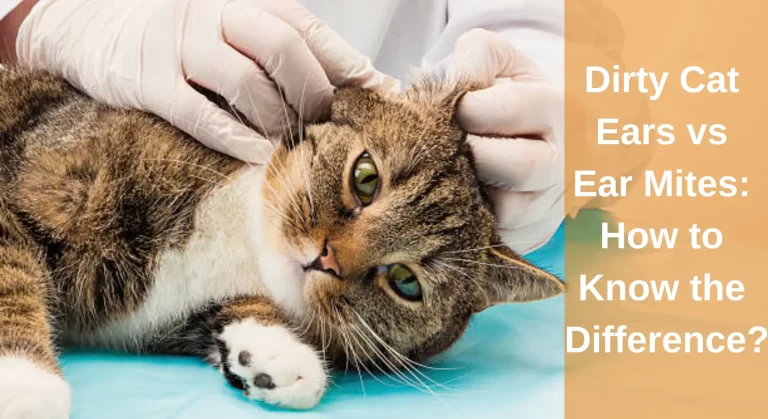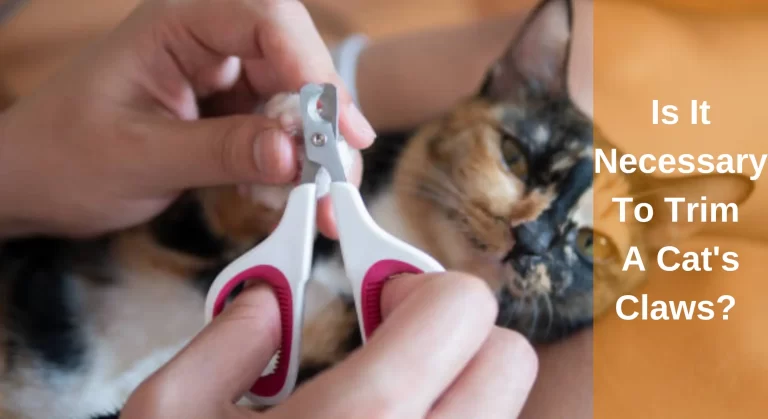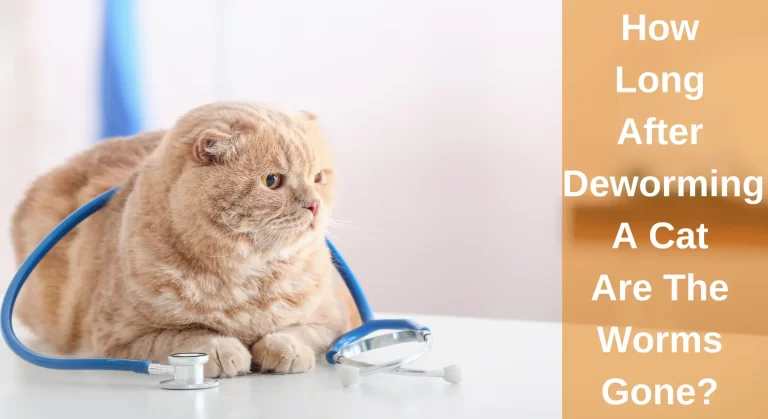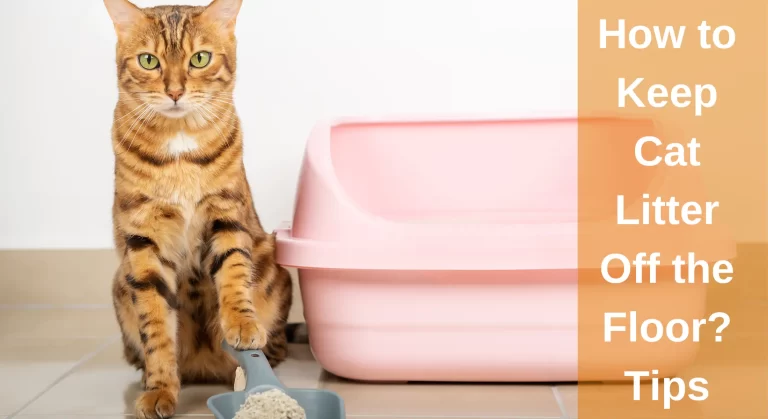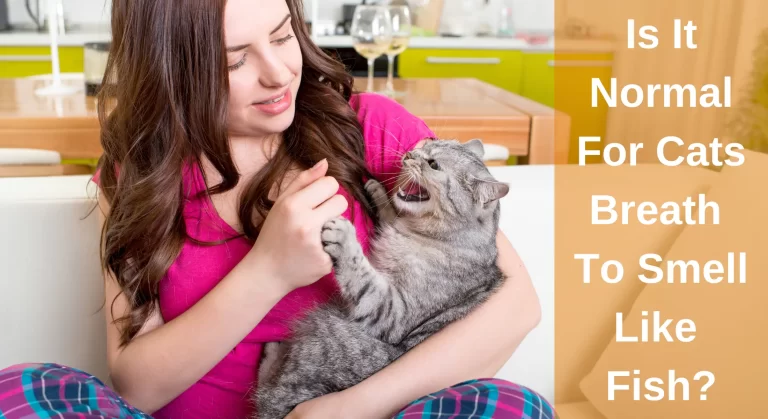My Kitten is Weak And Sleepy – How to Care for a Sick Kitten [A Guide]
Kittens have our hearts. They are undoubtedly the cutest pets one can have. Anyone who has owned a kitten can vouch for how hyper-energetic they can be. No wonder it breaks our hearts to see them tired and sick and would want to do anything to nurse them back to health.
If your kitten is weak and sleepy, it could be due to various reasons such as dehydration, infections, parasites, toxins, or injuries. To care for a sick kitten, provide them with a comfortable place to rest, nutritious food and water, and monitor their symptoms closely. Seek veterinary care immediately if your kitten shows signs of severe illness or injury.
Sickness in kittens is dangerous due to their low body mass. Your kitten will want to sleep more and refuse to eat. Veterinary attention is vital.
The purpose of this article is to cover all the reasons why my kitten is weak and sleepy, and if you need to consult a veterinarian. Additionally, I’ll cover some tips for taking care of a sick kitten. In no time at all, your kitten should be back to its playful self if you love and care for them.

1. Understanding the signs of a sick kitten
Before we dive into how to care for your sick kitten, it’s essential to understand the signs that indicate your kitten is unwell. Felines do not show that they are in pain until it becomes unbearable. Some common signs of sickness in kittens include:
- Lack of appetite
- Hiding or avoiding social interaction
- Changes in behavior or personality
- Sneezing, coughing, or wheezing
- Unusual discharge from the eyes, nose, or ears
- Difficulty breathing or swallowing
- Vomiting and diarrhoea
- Meowing more than usual
- Very quiet
- Hair loss or patches
- Bad breath
- Shortness of breath
- Change in pupil size
- Lethargy and unwillingness to play
- Not using the litter box properly
- Any swelling or wounds
- Limping
Take your cat to the veterinarian if you observe any of these symptoms, it’s essential to take action to help them feel better.
Find Out: Do Cats Inbreed? Things Cat Owners Should Know
Why is My Kitten Suddenly Weak And Sleepy?
It is imperative to contact your veterinarian as soon as you notice your kitten is suddenly lethargic. Weakness and tiredness are one of the main manifestations of many illnesses that your pet could have.
Kittens are tinier with developing immune systems, so disease in a kitten is more detrimental than the same disease in an adult cat. This is why your kitten needs a prompt medical examination, diagnosis, and treatment. Here are some conditions that can cause your tiny pet to be so drained:
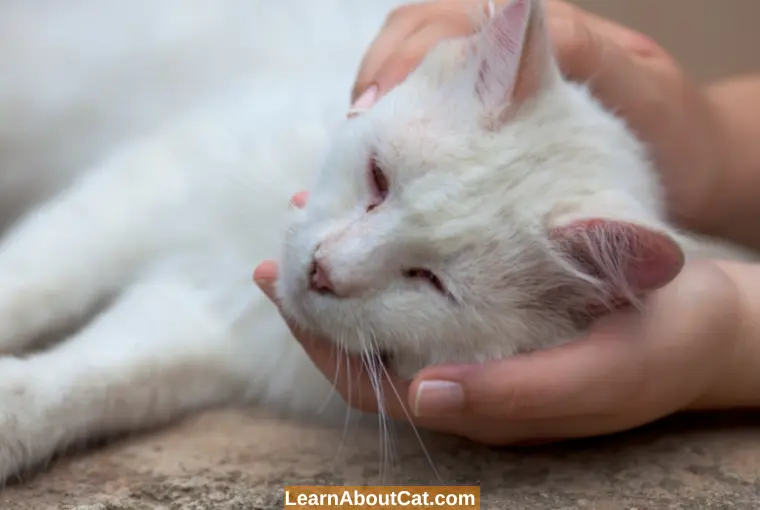
1. Severe Dehydration
Cats need water to thrive. Their physiological functions rely on the water in their bodies. Without it, their blood gets thickened, and there is less blood flow to the brain, causing sleepiness.
There are many reasons why a kitten could be dehydrated. Some cats are just bad at drinking water, but some kittens are born with congenital kidney disease. They may have a kidney infection or recently had a bad case of vomiting or diarrhea.
In any case, prolonged dehydration is dangerous. If your kitten is not drinking orally, it should be rushed to the vet to receive intravenous fluids.
2. Worm Infection
Worms are common in felines. They enter your pet’s gut through their mouths and live in their intestines, feeding off water and nutrients meant for your cat. Worm infection can bring an adult cat down, making it even more dangerous for your kitten because kittens don’t have any physical reserves to thrive on.
Roundworms can be passed through mother’s milk, so your entire litter could be infected. Some symptoms of worm infection are diarrhea, weight loss, and abdominal bloating. You may find rice-like pieces in your kitten’s feces and worm eggs.
Take your kitten to the vet to confirm the diagnosis and get the specific deworming medication to treat your baby pet effectively. Keep your infected kitten away from the litter, as worm infections are highly contagious.
Also Read: How Long After Deworming A Cat Are The Worms Gone?
3. Viral Infections
Just like getting the flu makes us tired and lazy; viral infections can bring your kitty down. Additionally, the stuffiness in their noses reduces their sense of smell, making food less appetizing to them.
Typical kitten infections include the Feline Leukemia Virus (FeLV) and the Feline Upper Respiratory Infection (FURI). If your baby pet is vaccinated, the chances of contracting these illnesses are almost zero; however, they can get it from their mother’s milk.
Kittens get bacterial infections by inhalation or something they eat, or through a wound. Some symptoms of these bugs are:
- Coughing
- Runny nose
- Vomiting
- Diarrhea
- Red eyes.
If they have a urinary tract infection, they will have to pee more often, and it will cause them pain.
Check Out: Best Flea Treatment for Kittens Under 12 Weeks
4. A Bad Tummy-Gastrointestinal Problems
Because all nutrients are absorbed through the alimentary tract, a problem with it can make your kitty very tired and sleepy. There are numerous gastrointestinal problems that your pet can have, ranging from infection to allergies to swallowing non-edible items.
They all present in more or less the same way, vomiting, diarrhea, and a bloated abdomen. The dehydration and electrolyte imbalance from vomiting and diarrhea leads to lethargy too.
5. Congenital disabilities or illnesses
In some cases, congenital disabilities or illnesses may cause your kitten to feel weak and sleepy. If you suspect your kitten may have a congenital issue, consult with your veterinarian for a proper diagnosis and treatment plan.
6. Fading Kitten Syndrome
This is an unfortunate condition where kittens from the ages of 0 to 6 weeks fail to thrive, lose weight, and get very sick. In most cases, the cause is unknown.
Because they are not eating, they can develop hypoglycemia, which will result in weakness, crying, seizures, and ultimately, death.
Interesting Reading: Do Cats Make Weird Noises When Sick?
How to Care for a Sick Kitten?
Key Points:
- Monitor its food and water intake, how much it poops or pees, and body weight daily.
- Keep your baby pet away from the rest of the litter to prevent the spread of disease.
- Keep cosy blankets nearby, as well as a heating pad underneath it, to keep your pet warm.
- Wash your hands before handling your kitten.
- Give it medication as prescribed, and make sure to complete the course.
- Make sure to feed it every 2-4 hours, depending on its age and with a syringe if necessary.
- Newborn kittens need help with pooping and peeing, so you will need to rub their genitals with a soft washcloth after every feed.
1. Keep your kitten warm and comfortable
Sick kittens may struggle to regulate their body temperature, making them more susceptible to hypothermia. Ensure your kitten has a warm and comfortable place to rest, such as a soft blanket or bed. You can also use a heating pad or hot water bottle wrapped in a towel to provide extra warmth.
2. Make sure your kitten stays hydrated
Dehydration is a severe concern for sick kittens, as it can quickly lead to further complications. Ensure your kitten has access to fresh and clean water at all times and consider using a syringe or dropper to offer water if they refuse to drink.
3. Feed your kitten a healthy diet
Sick kittens may lose their appetite or struggle to eat due to nausea or other symptoms. Offer small and frequent meals of high-quality kitten food and consider warming up the food to make it more appealing. If your kitten refuses to eat, consult with your veterinarian.
4. Give your kitten the necessary medications
Your veterinarian may prescribe medications such as antibiotics, anti-inflammatory drugs, or dewormers to help your kitten recover. Ensure you follow the dosage and administration instructions carefully.
5. Monitor your kitten’s behavior and symptoms
Keep a close eye on your kitten’s behavior and symptoms, such as appetite, hydration, energy levels, and any changes in behavior. Note any improvements or worsening of their condition and report them to your veterinarian. This information can help the veterinarian adjust the treatment plan as needed.
6. Schedule regular check-ups with your veterinarian
Regular veterinary check-ups are crucial for your kitten’s overall health and well-being. It’s especially important to schedule check-ups when your kitten is sick to monitor their progress and ensure they’re on the right track to recovery.
Also Check Out: When Can Kittens Leave Their Mom?
What Should I Feed a Sick Kitten? Tips for feeding a sick kitten
When caring for a sick kitten, it’s important to ensure they receive proper nutrition to aid in their recovery. Here are some tips for feeding a sick kitten:

What to feed kittens depends on the life stage they are at.
- You can offer your kitten canned food if they are older than 6 weeks. It is unlikely they would want to eat kibble as sick kittens do not find food appetizing. You can try heating the canned food, so the aroma reaches their blocked nose.
- If they still won’t eat, try feeding them with your finger. Put some of their food on your finger and bring it in front of their mouth. You need to be patient, do not shove food into their mouth.
- If they do not eat this way, you will have to grind the food into a milkshake-like consistency, then feed them with a syringe. You need to do this every 2-4 hours, depending on the kitten’s age.
- Older kittens can go 4 hours without food, while kittens under 4 weeks need to be fed every two hours (even through the night).
- You will need to wake up and feed your kitten if they are sleeping and it’s time to eat.
- You may need to hydrate your kitten the same way.
- Do not overfeed your kitten, as it may throw up.
- Meat-based baby food may be a good option to tempt your kitten to eat while it’s sick; just make sure it has no onions or garlic, as these ingredients are toxic to cats.
You can feed them kitten milk replacer for kittens less than 4 weeks old. Make sure it is warm to the touch but not hot, and feed it to them with a syringe and nipple cap.
You can give them medicine with another syringe during feeds, as medicine sometimes does not taste good, and the taste of food will mask it.
Find Out: Cat Not Eating or Drinking- How Long Can a Cat Survive?
Prevention of Illness in Kittens
Preventing illness in kittens is essential for their overall health and well-being. Some ways to prevent illness include:
Vaccinations
Vaccinations can protect your kitten from several common illnesses, such as feline panleukopenia, feline leukemia virus, and upper respiratory infections. Make sure to follow your veterinarian’s recommended vaccination schedule.
Proper Nutrition
A balanced and nutritious diet can help support your kitten’s immune system and overall health. Make sure to choose high-quality kitten food that meets their nutritional needs.
Cleanliness and Hygiene
Keeping your kitten’s environment clean and hygienic can help prevent the spread of illness. Regularly clean their litter box, bedding, and toys, and wash your hands before and after handling them.
What Is Fading Kitten Syndrome? Learn To Spot the Symptoms

Fading kitten syndrome is a general term for kittens who become progressively sick over the first several weeks of life. What makes this an unfortunate condition is that 80% of the time, no real cause can be found. When veterinarians do find a cause, it’s one of the following:
Omphalophebitis
Omphalophebitis, or the belly button infection, happens when the mother chews off the umbilical cord during birth.
Genetic Defects
Some kittens have defects that make life possible for them in the womb but are incompatible with life outside of it. For example, certain heart conditions make it impossible for a kitten to thrive.
Neonatal Isoerythrolysis
Neonatal isoerythrolysis is a condition where kittens have a different blood type than their mothers. After birth, the kitten’s red blood cells are attacked by the antibodies in the mother’s milk. The kittens start off healthy, but over the course of a few weeks, their health declines.
Find Out More: Why Does My Cat Keep Moving Her Kittens?
What Age Do Kittens Get Fading Kitten Syndrome?
Kittens develop this unfortunate condition during their life’s first 4-6 weeks. There is no way to prevent it. All you can do is carefully monitor their food intake, excrement, and weight daily so they can be caught early on.

Recognize the Symptoms of Fading Kitten Syndrome
The signs of fading kitten syndrome are faint. You will notice that the particular kitten is not gaining weight like its siblings. It might not even interact or play with its siblings.
A kitten should gain 10 pounds per day. If your kitten is not gaining or losing weight, it is a cause for alarm. The kitten will be disinterested in eating, be lethargic, not make sounds, and have a dull coat.
How to Take Immediate Action
A kitten that is away from the rest of the litter will quickly become cold, as kittens cannot maintain their body temperature. If it is not feeding, it will become hypoglycemic.
If your kitten seems cold, wrap it in a towel. Alternatively, you can put it on a heating pad or hot water bottle.
If your kitten is weak and tired, rub some honey or sugar water onto its gums, then rush it to the vet. Hypoglycemia is lethal for kittens; this is a fast way to raise blood sugar levels in case of emergencies. Because of their low body mass, your kitten can deteriorate rapidly.
If you want to keep your kitten healthy, it’s a good idea to consult a veterinarian. Your vet will give treatment for an infected belly button and tell you how to manage the condition.
You Might Like to Read: Where Should Kittens Sleep at Night? – First Night
Frequently Asked Questions
How much sleep is normal for kittens?
Kittens sleep, on average, 16-20 hours a day. A newborn kitten sleeps up to 22 hours a day. This is quite natural and does not indicate that they are ill.
Is sugar water good for a sick kitten?
Sugar water is a great option for sick kittens or kittens with fading kitten syndrome as it raises blood sugar levels. For 1 liter of water, you can add two tablespoons of sugar. Boil for 5 minutes, let it cool, then filter and give it to your kitten via a syringe.
Can a lack of proper nutrition cause a kitten to be weak and sleepy?
Yes, a lack of proper nutrition can lead to a weakened immune system and malnourishment, which can cause lethargy and weakness.
Can kittens get colds or flu?
Yes, kittens can get upper respiratory infections that are similar to colds or flu in humans.
How long does it take for a sick kitten to recover?
The recovery time for a sick kitten depends on the severity of their illness and the treatment they receive. It is important to follow your veterinarian’s recommendations and monitor your kitten’s progress closely.
Conclusion
As heartbreaking as it is to have a sick kitten, taking it to the vet and getting an exact treatment plan helps reduce anxieties. With proper care, medication and nursing, kittens can make a rapid recovery.
Remember to keep a close eye on your kitten’s behaviour and symptoms, and provide them with a comfortable and clean environment, as pet owners, it’s our responsibility to ensure our pets’ well-being and seek professional help when necessary.
Who is Isabella?
My name is Isabella, and I am a dedicated and knowledgeable cat enthusiast. With years of experience caring for cats and a deep love for felines, I made a mission to help other cat lovers navigate the challenges of cat ownership.

